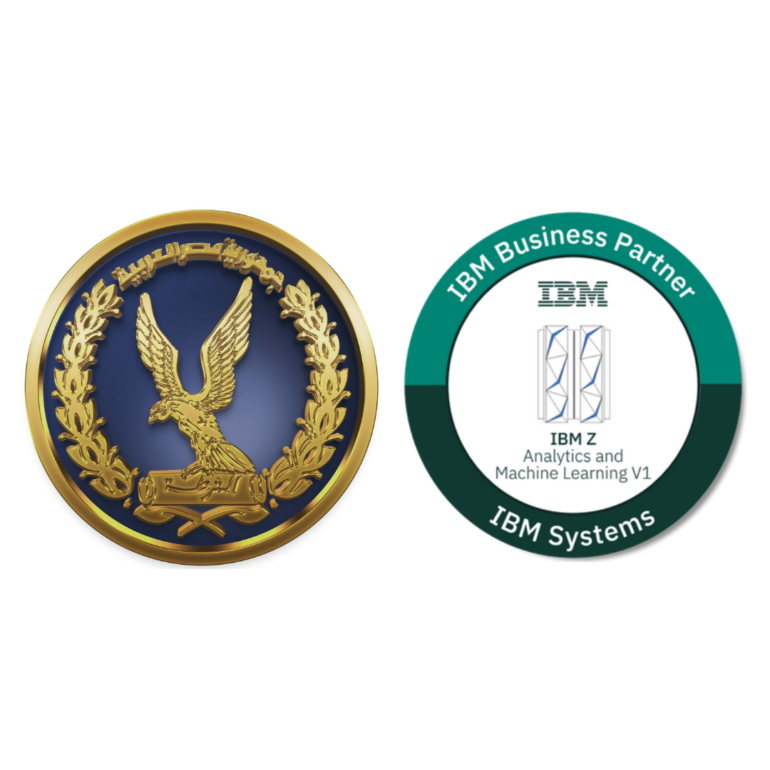Tech Heritage Event
We are pleased to announce that TOPTECH was a Pioneer Sponsor at the Tech Heritage tradeshow event which took place [...]


todayNovember 27, 2023
News Admin
We are pleased to announce that TOPTECH was a Pioneer Sponsor at the Tech Heritage tradeshow event which took place [...]
Case Study Admin todayOctober 2, 2023 94

Implementing IBM System z16 and IBM WebSphere for z/OS V9 for the Main and DR Sites of The Egyptian Civil Society Organization
 Introduction:
Introduction:
The Egyptian Civil Society Organization (CSO) is a governmental organization committed to serving and supporting the citizens of Egypt. As part of their mission, CSO manages various services for the civil status sector, such as issuing birth certificates, marriage licenses, and national identification cards. To ensure efficient and streamlined operations, CSO partnered with TOPTECH, a leading IT solutions provider, to implement the new IBM System z16 and IBM WebSphere for z/OS V9.
Business Challenge:
Prior to the implementation, CSO faced several challenges that hindered their ability to provide timely and accurate civil status services. Some key challenges included:
a) Outdated Infrastructure: CSO’s legacy systems lacked the scalability, performance, and reliability required to handle the increasing volume of transactions, leading to frequent system failures and downtime.
b) Inefficient Data Management: The existing systems had difficulties in managing and processing the extensive data generated by the civil status sector, resulting in delays and errors during data retrieval and processing.
c) Lack of Disaster Recovery: The absence of a comprehensive disaster recovery (DR) solution exposed CSO to significant risks. A disaster event could potentially lead to data loss and prolonged service disruptions, adversely affecting citizens.
Solution:
CSO collaborated with TOPTECH to design and implement a robust solution using IBM System z16 and IBM WebSphere for z/OS V9. The solution aimed to address the organization’s challenges and improve the efficiency and reliability of their civil status services. The key components of the solution were as follows:
a) IBM System z16: The new mainframe infrastructure provided CSO with enhanced processing power, improved scalability, and increased memory capacity. With advanced cryptographic capabilities and unparalleled system availability, IBM System z16 ensured the secure and uninterrupted processing of high-volume transactions.
b) IBM WebSphere for z/OS V9: The latest version of IBM WebSphere provided CSO with a modern and agile application server platform. It facilitated the deployment, management, and scaling of applications, enabling CSO to adapt to evolving business requirements and improve response times for citizen requests.
c) Disaster Recovery (DR) Implementation: TOPTECH implemented a comprehensive DR solution that included replicating data between the main and DR sites in real-time using IBM Global Mirror. This ensured data integrity and minimized the recovery time objective (RTO) in case of any disaster event.
Benefits and Results:
The implementation of the new IBM System z16 and IBM WebSphere for z/OS V9, along with the DR solution, yielded several significant benefits for ECSO:
a) Improved System Reliability: The enhanced mainframe infrastructure drastically reduced system failures and downtime, ensuring uninterrupted service availability. This resulted in increased citizen satisfaction and trust in CSO’s civil status services.
b) Enhanced Data Management: The new infrastructure and application server platform enabled efficient management and processing of large volumes of data, leading to faster response times and improved data accuracy.
c) Robust Disaster Recovery: The comprehensive DR solution ensured that CSO could swiftly recover from any disaster event, minimizing service disruptions and data loss.
d) Scalability and Future-readiness: The new solution provided CSO with the flexibility to easily scale their infrastructure as citizen demands and transaction volumes grow. This future-proofed their IT infrastructure investment.
Conclusion:
The successful implementation of the new IBM System z16 and IBM WebSphere for z/OS V9, along with the DR solution, empowered The Egyptian Civil Society Organization to enhance their civil status sector services. By partnering with TOPTECH, ECSO was able to overcome their infrastructure challenges, improve system reliability, streamline data management, and establish a robust disaster recovery capability. As a result, ECSO experienced increased efficiency, improved citizen satisfaction, and strengthened their overall
Given the substantial demand from Egyptian citizens for various legal documents, such as birth certificates, marriage certificates, and national IDs, ECSO has been diligently serving over 15,000 citizens daily through its extensive network of more than 100 branches across Egypt. To meet this growing demand, ECSO has decided to upgrade its existing infrastructure and replace it with IBM System Z16 appliances capable of processing over 20,000 transactions per second. Considering this, the IBM System Z16 Mainframe, renowned for its reliability and efficiency, stands out as an ideal solution, enabling a staggering 32,000 transactions per second.
Below are some numbers about IBM SystemZ
Some key details on z16 transaction processing power:
So in summary, the z16 is designed to handle peak transaction rates of over 34,000 tps given its high core counts, advanced transaction processing capabilities, tuning algorithms, and enterprise resilience features. This makes it well-suited for mission-critical, high-volume transactional workloads.
Written by: Admin

Case Study Admin
Successful Relocation Service by TOPTECH for The Administrative Control Authority (ACA) This case study showcases the successful relocation services provided by TOPTECH to The Administrative Control Authority (ACA), one of ...



Copyright 2021 © - All rights reserved to TOPTECH Egypt - Privacy Policy
Post comments (0)